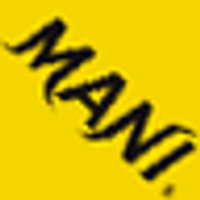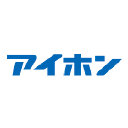
Envestnet Inc
NYSE:ENV

Envestnet Inc
Envestnet Inc., founded in 1999, has evolved into a formidable player in the financial services technology sector. Born from the idea of making the investment management process more efficient and accessible, the company built its reputation by providing platforms that streamline and enhance the capabilities of financial advisors. With an array of digital tools, Envestnet offers everything from portfolio and practice management to data aggregation and analytics. This comprehensive suite enables financial advisors to deliver tailored investment solutions, thereby empowering them to focus on growing their client's wealth. The firm's commitment to innovation is evident through its continual investment in technology, making the complex world of investment manageable and comprehensible for advisors and their clients alike.
The heart of Envestnet's revenue model lies in its ability to package these technological solutions for a fee. It operates primarily through two segments: the Envestnet Wealth Solutions and the Envestnet Data & Analytics segments. The former generates revenue by charging asset-based fees for access to its platform, enabling advisors to efficiently manage their client accounts and securities portfolios. The latter draws income from providing data intelligence and analytics solutions, which are highly sought after by both financial advisors and large institutions eager to make informed decisions. By positioning itself at the confluence of technology and finance, Envestnet has uniquely capitalized on the growing demand for integrated, tech-driven financial solutions. Its emphasis on data-driven insights and personalized investment strategies showcases its pivotal role in shaping the future of wealth management.
Earnings Calls
In Q2 2025, MANI reported net sales of JPY 14.81 billion, a 6.5% increase year-on-year. Operating income was JPY 4.17 billion, slightly down due to an JPY 800 million loss from a product recall in China. Despite challenges, segments like Surgical and Eyeless Needles grew by 25% and 12%, respectively. MANI expects a full-year impact of JPY 1 to 1.5 billion from the recall and is guiding for JPY 8 billion in sales in China. Strategic changes to enhance quality assurance will take effect May 2025, aiming to recover lost trust and improve operations after this major crisis.






















































 You don't have any saved screeners yet
You don't have any saved screeners yet

Good morning, everyone. Thank you for taking the time off your busy schedules to attend today's presentation. I would like to begin explaining our financial results for the second quarter of fiscal year 2025. The first issue on today's agenda is the voluntary recall of MANI DIA-BURS in China. On March 14, upon discovery that the product registration information submitted to the Chinese regulatory authorities was incomplete, we made the decision to carry out the voluntary recall of the product lines affected. The recall is currently underway. Since this issue is related to the application to the Chinese regulatory authorities, we have determined that there will be no impact on patients' health as well as sales to other regions.
We are also examining the impact on our business performance for the fiscal year ending August 31, 2025, and we'll disclose any information that needs to be disclosed in the future. All of the rough estimates have been factored into today's explanation. Let me give you a more detailed overview. On October 31, 2024, we voluntarily recalled 2 lots due to the discovery that the product registration information for MANI DIA-BURS was incomplete, and therefore, we have recalled the product in question. Following this, we voluntarily stopped product shipments of all 400 items to check whether other DIA-BURS also had incomplete registration information. As a result, it was found that 50% of the total 400 items had incomplete product registration information. Since it was an error in the description, we have been negotiating with the regulatory authorities to correct it.
However, the regulatory authorities have decided that it is necessary to submit another application for change. Rules and regulations in China require us to temporarily stop shipments and recall the affected products and only allow us to resume sales operations once the updated registration information has been approved. MANI intends to comply with these rules and regulations. Approximately 50% of MANI DIA-BURS will require changes to their product registration information, while the remaining 50% only require minor changes to the manufacturing process specifications MANI DIA-BURS have a market share of more than 70% in China, and our customers use our products with a very high regard for their reliability. It pains us terribly that this error ended up having the effect of betraying the trust of our loyal customer base in China. And for this, we would like to apologize.
This also affected the approximately 200 distributors we deal with in China, and it also negatively impacted the company's stock price and consequently, our shareholders. Once again, allow us to express our deepest apologies. As I mentioned earlier, we have already reapplied for regulatory approval for the product, which is expected to take about 1 year. During this time, we will make all the necessary preparations so that we can return to normal business operations. This is the biggest crisis MANI has faced since COVID, so we are committed to making sure we address this issue and minimize disruptions caused to our clients and the medical institutions that use our products. Management at MANI is also committed to achieving the best recovery possible for the benefit of all investors and stakeholders.
To overcome this crisis, we will be enacting several changes to our business execution structure to go into effect on May 1, 2025. One such change is to strengthen quality assurance and pharmaceutical affairs. And to this end, Chairman Saito will take on this role by concurrently serving as the Department Head of the Quality Assurance Department. Executive Vice President, Takahashi, had long held the position of CFO and was in the process of passing on the baton and delegating CFO functions, but the current crisis we face necessitates his return to the site to provide solid management. These changes will go into effect on May 1, 2025. I would now like to explain our financial results for the second quarter of fiscal year 2025.
As you can see here, consolidated net sales for the second quarter stood at JPY 14.810 billion, which is a year-on-year increase of 6.5%, while the operating income was JPY 4.172 billion, slightly below the results from the same period last fiscal year. I will be going over the details later, but in broad terms, while the voluntary recall of DIA-BURS did have a negative impact of approximately JPY 800 million, strong sales in the Surgical and Eyeless Needle segments nevertheless allowed us to offset this impact. This table details our nonoperating income and expense results. Specifically, foreign exchange gains decreased due to yen appreciation. Additionally, depreciation has now started for the Hanaoka Factory, which was completed on January 31.
Consequently, we recorded depreciation expenses for the month of January under the line item of nonoperating expenses. Once the factory enters a mass production regime, depreciation expenses will then be moved to the operating portion of the income statement. This is the net sales status by segment. Foreign exchange and the results for the Surgical and Eyeless Needle segments contributed to a year-on-year sales increase, while sales at MANI Dental declined by JPY 586 million. The sales decline in MANI Dental was mainly due to the negative impact of the voluntary recall of DIA-BURS in China totaling JPY 800 million. Other than that, sales in the other remaining areas of this business were positive. Also within the Dental segment, we have MMG, MANI's German subsidiary and manufacturer of dental restoration materials. Sales for this business declined on a year-on-year basis. Consequently, we are aware that this is an issue and are thus in the process of executing measures toward recovery.
Next is the net sales status by region. Sales grew in Japan, North America, Europe and other regions as the global health care market for the products we offer continues to grow and as we believe that our product market is growing broadly. In particular, sales have been booming in emerging countries such as Central and South America and Egypt. Next is the operating income status. Foreign exchange, an increase in sales and an improvement in the cost of sales ratio had a positive effect on operating income. Conversely, the payment of performance-linked bonuses weighed down on results. As I explained during the results presentation for the first quarter, we ended up recording JPY 230 million that had originally been expected for last fiscal year, and this consequently weighed down on operating income.
Lastly, while we did record an increase in SG&A, personnel costs, R&D costs and sales and marketing costs were once again in line with the plan. Taking all of these factors into account, operating income results were unchanged and in line with last fiscal year's results as of the end of the second quarter. I would now like to explain in greater detail the status of our business in China. The vertical bar graph on the left shows the sales trend from fiscal year 2020. Values are denominated in Japanese yen. As you can see, CAGR has risen by 21% in Japanese yen terms and increased by 14% in local currency terms due to the appreciation of the Chinese yuan. This sales expansion over the years has been driving MANI's growth thus far. In contrast, the current issue with diverse has caused some stagnation or rather led us to a very challenging phase. The graph on the right shows the first and second half results breakdown for fiscal years 2024 and 2025.
To reiterate, the voluntary recall of diverse had a negative impact of JPY 800 million on sales in the first half, and we expect the full year impact for fiscal year 2025 to be between around JPY 1 billion and JPY 1.5 billion. Meanwhile, the Surgical and Eyeless Needle segments remained positive in the first half of the fiscal year. Our first priority right now is to seriously deal with the voluntary recall in the Chinese market, hoping to make a proper recovery in about a year. So in light of all these factors, we are guiding for JPY 8 billion in sales in China in fiscal year 2025. Next are the financial results by segment. Net sales grew by approximately 25% in the Surgical segment and by approximately 12% in the Eyeless Needle segment, underscoring a strong performance by these 2 segments. Conversely, net sales were down in the Dental segment.
Allow me to explain the details for each segment. First, the Surgical segment delivered growth focused on Europe and Asia, especially in China. In Europe, we saw particularly strong results in Switzerland, Germany and the United Kingdom. These results weren't restricted to ophthalmic knives and include trocars and other medical instruments, indicating strong demand for our products. In terms of future key measures, we established a local subsidiary in the U.S. and are working in earnest to promote sales of ophthalmic knives in this market. At the moment, we are just about to finalize contracts with distributors. We are aware that we are making clear progress in this area. In the Eyeless Needle segment, the regions where sales grew in the first half were China, Asia and Central and South America. Specifically, our North American customers have production bases in Central and South America.
So while the final destination for these products is North America, sales in these regions increased. Additionally, although the gross profit margin improved, operating income dipped slightly in the second quarter due to an increase in SG&A expenses. In terms of future key measures, MANI's superior products, especially black needles have been very well received. So we would like to focus on expanding such products. In the Dental segment, we are striving to recover and reinforce our business in the face of the voluntary recall of DIA-BURS in China and the decline in orders from major customers at MMG. In terms of future key measures, we have added 3 SKU items to our JIZAI lineup, meaning that we now offer products covering all steps of the root canal treatment sequence. These products have been very well received. So while the scale is still small, sales of this product line have been growing steadily.
As for our balance sheet, noncurrent assets are in a positive position following the completion of the Hanaoka factory. With regard to liabilities, consumption taxes paid and current liabilities, such as accounts payable and income taxes payable are recorded here. Both are related to the Hanaoka Factory. As you can see, within investing cash flow over the past 1.5 years, spanning the first and second halves of fiscal year 2024 and the first half of fiscal year 2025, we carried out investments for our smart factory, also known as the Hanaoka factory. Production lines, each for JIZAI and ophthalmic knives are expected to start operations in the second half of fiscal year 2025. As such, upon an additional investment of approximately JPY 2 billion, we expect investments for the Hanaoka Factory to final settle down. We recorded JPY 3 billion in operating cash flow in the first half of fiscal year 2025, down approximately JPY 1 billion from the second half of fiscal year 2024.
That said, operating activities and CCC remain unchanged. So this decrease was the result of the payment of consumption tax. These are our forecasts for the full year. As for the forecast for the full year, the second column from the right shows that we are in line with our initial forecast. We are also presenting a comparison of our forecasts and actual results for the second quarter. As I mentioned earlier, despite the negative impact of the voluntary recall of DIA-BURS in China, sales of other segments performed well. We also benefited from foreign exchange tailwinds as the U.S. dollar strengthened to JPY 151 versus the Japanese yen, exceeding our forecast of JPY 136. Ultimately, overall results were in line with the forecasts.
Therefore, as I have explained, we have factored in the negative impact of the voluntary recall in our business in China. And today, I have explained to you that our results are in line with our full year forecasts. Capital investment and R&D expenses are as shown here and have been in line with our forecasts. As for dividends, we have decided to pay an interim dividend of JPY 16 per share, as I have explained so far, and there is no change in the annual dividend of JPY 39 per share. This concludes our financial results presentation for the second quarter of the fiscal year 2025. Thank you very much for your kind attention.
[Statements in English on this transcript were spoken by an interpreter present on the live call.]